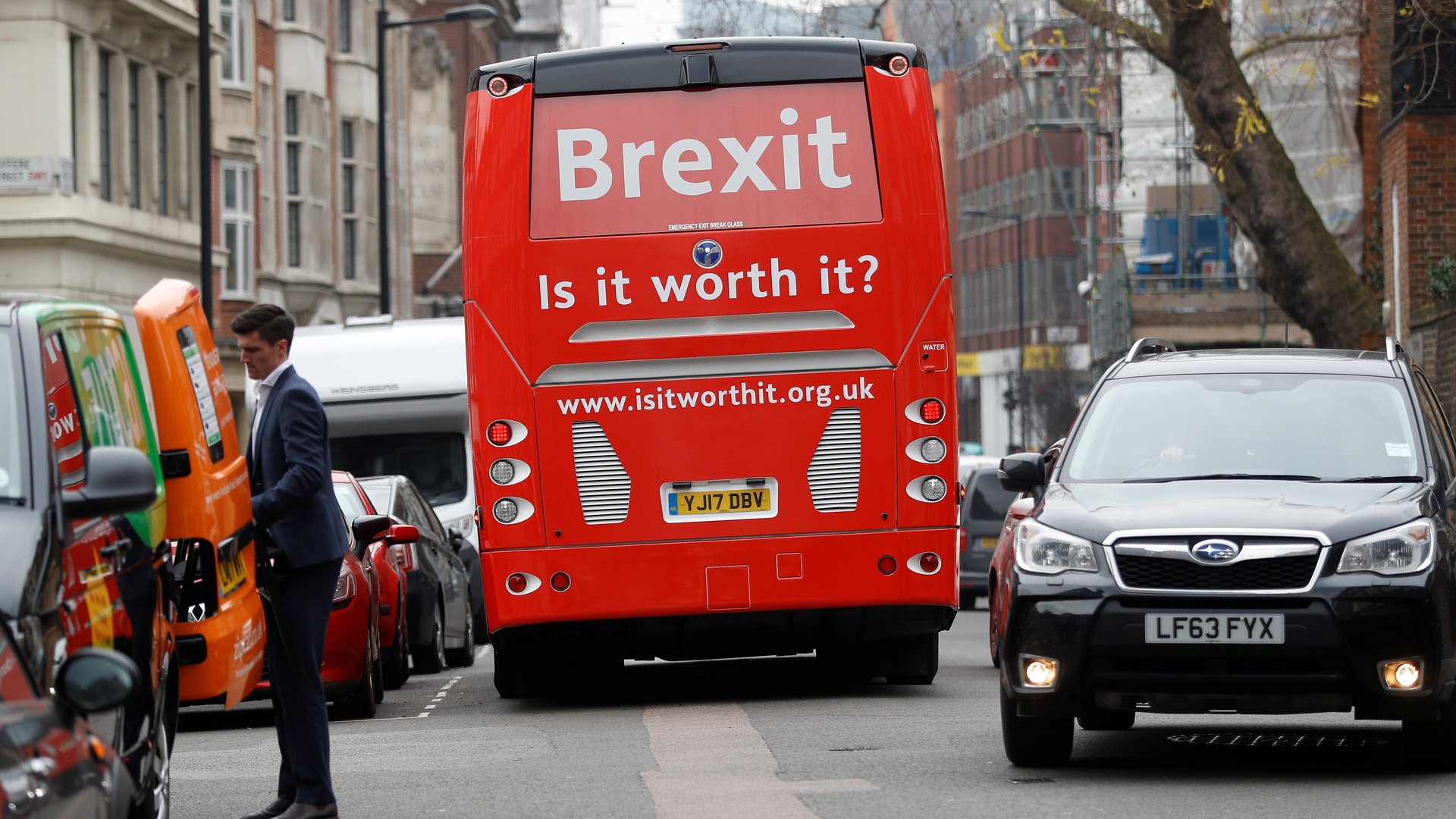This interactive website lets UK citizens see exactly what the EU has done for them
“What has the EU ever done for us?” is a fairly common sentiment among Brexiteers. In the run-up to the June 2016 referendum on whether the UK should leave the EU, the Leave campaign frequently argued that membership in the coalition was a drain on the British economy.


“What has the EU ever done for us?” is a fairly common sentiment among Brexiteers. In the run-up to the June 2016 referendum on whether the UK should leave the EU, the Leave campaign frequently argued that membership in the coalition was a drain on the British economy.
But a new website turns that assumption on its head. The open-source platform MyEU, created by a group of anti-Brexit data analysts, shows just how much EU membership contributes to local communities in the UK.
MyEU was created by four analysts, John Lees-Miller, Hope Thomas, Kiyana Katebi, and Andrew Weeks, during The Great British Hack-Off festival, a two-day hackathon organized by the anti-Brexit groups Tech for UK and Best for Britain. The platform allows UK citizens to input their zip codes and see where EU funds contributed to projects in their neighborhoods. For example, a quick search of the Quartz London office zip code reveals that, in just one area of the London neighborhood of Marylebone, the EU has contributed financing to 16 projects. These range from European Research Council funding for research into blood biomarker-based diagnostic tools for early stage Alzheimer’s disease to European Commission contributions to the management budget of the Royal College of Nursing of the United Kingdom. The larger map of West London also contains dozens of EU-funded projects.
John Lees-Miller, the co-creator of MyEU, says he and his fellow analysts created the website because they were curious to see how the UK would make up for the loss of EU funding after Brexit. They also had the sense that many UK residents didn’t fully understand how Brexit would directly impact them. “I think a lot of people didn’t realize that the EU was doing something just down the street from them,” Lees-Miller says. “What’s going to happen to all these local projects? How are they going to keep going?”
A quick search of the website shows that the funds the UK contributes to the EU don’t just go to other countries—they flow back to the UK and fuel economic development there, too. In fact, according to the UK Office of National Statistics, the EU invests more than £4.4 billion a year in the UK.
“The EU is not a perfect institution; but it is nonetheless a good one,” Lees-Miller says. “And I think we’re much better off being in the EU and bring able to influence it and change it for the better, than being outside the EU and not being able to influence it at all.”